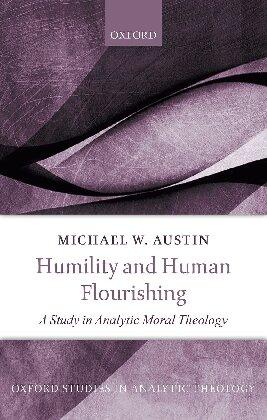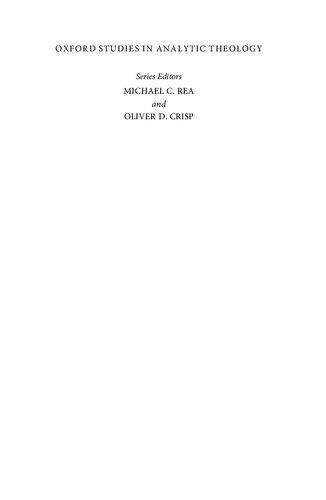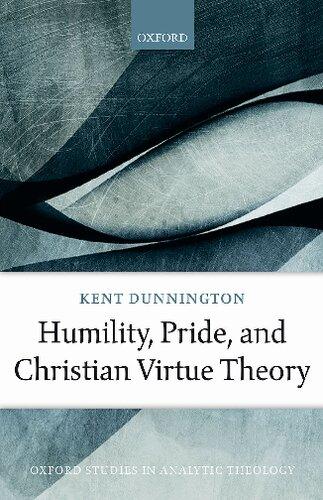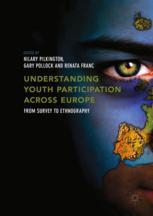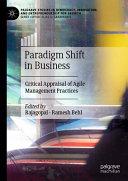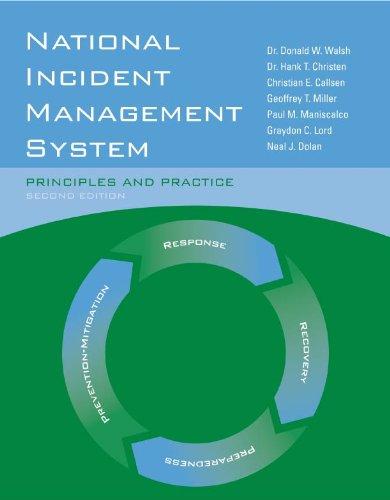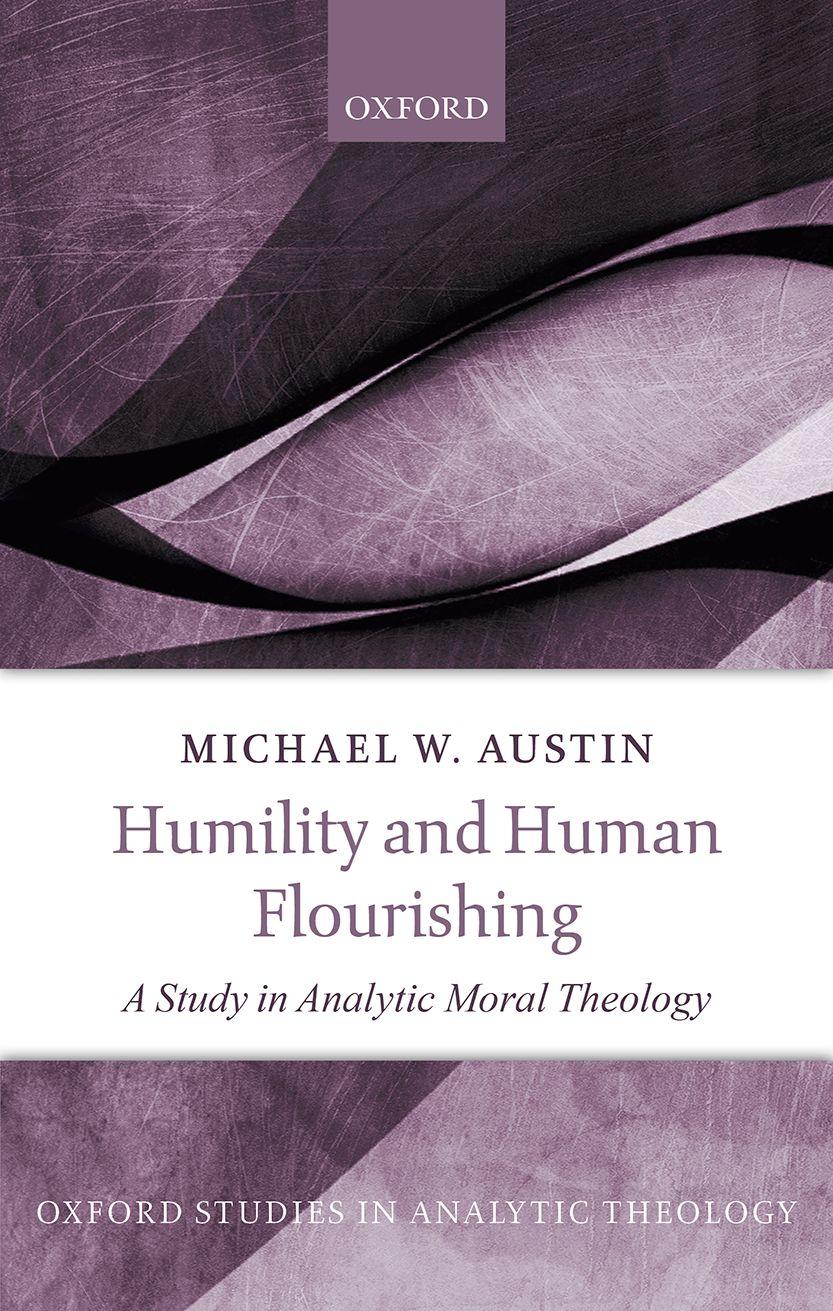Philosophy,Theology,and ChristianVirtue
Humilityisacomplex,controversial,andmisunderstoodvirtue.People conceiveofthenatureandvalueofthistraitinavarietyofways.There aredistinctandsometimesmutuallyinconsistentphilosophicaland theologicalaccountsofthisvirtue.Therearealsodifferentfolkunderstandingsofwhathumilityisandwhatitrequires.Onecommonview ofChristianhumilityisthatitinvolveshavingalowviewofoneself.On thisview,thehumblepersonhaslowself-esteem,andperhapsavery lowregardforherinterests.Thehumblepersonshouldnotbeassertive, butratherpassiveandsubmissive.Iwillarguethatthisviewismistaken, andcontrastsinsignificantwayswithaproperChristianconceptionof thevirtueofhumility.
Thisdiversityofopinionwithrespecttohumilityisperhapsreinforcedbythefactthatphilosopherspastandpresenthaveexpressed skepticismconcerningitsstatusasavirtue.Forexample,humilitydoes nothaveaplaceinAristotle’scatalogueofthevirtues.DavidHume expressesdeepskepticismabouthumility’sstatusasavirtue,andasserts thatitisamoralvice.ContemporaryphilosopherTaraSmithargues thatpride,andnothumility,isavirtue.1
WithintheChristiantradition,however,manytakehumilitytoplay acentralroleinthemoralandspirituallife.Thevirtueofhumility isalsoemphasizedindifferentpartsoftheBible,sometimesquite strongly.InNumbers12:3,theauthorstatesthat “themanMoses wasveryhumble,moresothananyoneelseonthefaceoftheearth,” andsubsequentlyrecordsYahweh’sconfrontationofAaronandMiriam forspeakingagainstMoses.HumilityisalsoatraitthatGodissaid
1 IdiscusstheviewsofHumeandSmithinchapter3.
2 HumilityandHumanFlourishing
toreward(seeProverbs22:4).InMicah6:8,theauthorstates “Hehas toldyou,Omortal,whatisgood;andwhatdoestheLORD requireofyou buttodojustice,andtolovekindness,andtowalkhumblywithyour God?” HumilityalsoappearsinthegospelsandmanyNewTestament epistles.ItisdescribedasatraitthatJesuspossessesandthathis followersshouldexemplify.2
Withrespecttothemeaningofhumility,StephenPardueobserves thatwhileitisclearthatthistraitiscommendedinboththeHebrew BibleandJudaismmorebroadly,thedefinitionofitislessclear.3 HenotesthatsometaketheHebrewBibletoassociatehumility withhumiliation,whileothersdisputethisandcontendinsteadthat humilityinvolvesrecognizingone’sdependenceonGod,submitting toGod,andservicetoothers.IntheJewishtradition,humilityis takentobeanimportanttraitforrelatingtoGodandothers,includingarecognitionofone’sownintellectuallimitationsandbeing humbleinone’sactions.4 Parduealsonotesthatthosewhoespouse aChristianunderstandingofhumilityintheNewTestamentandthe earlyChristiantradition “renovatehumilityinlightofJesus’ lifeand death,transposingtherichJewishtraditionregardingthevirtueand itssocial,political,andtheologicalimplicationsintoaChristocentric key.”5 Thisrenovatednotionofhumilityplaysasignificantroleinthe Christiannarrative,culminatinginthepersonandworkofChrist.It isdevelopedintheNewTestamentasacentralvirtueforpietyand forhopeintheeschaton.6 Forexample,humilityisseenasimportant forone’srelationshiptoGod,insofaras “Godopposestheproud,but givesgracetothehumble” (James4:6).Humilityalsoappearsinsome oftheNewTestamentvirtuelists(Colossians3:11–13;Ephesians 4:1–3).Itisseenasaproductofwisdom(James3:13).Thehumility ofChristisevidentinthegospels.Jesusisreportedasascribing humilitytohimselfinMatthew11:28–30,wherehedescribeshimself as “humbleinheart.” Heexemplifieshumilitywhenhewashesthefeet ofhisdisciples(John13:1–20).TheapostlePaulurgesthePhilippian churchtoimitatethehumilityofChristintheirrelationshipswithone another,followingthepatterndisplayedbyJesusinhisincarnation
2 Forexample,seeMatthew11:29,Colossians3:12,Ephesians4:2,1Peter5:5–6, Philippians2:1–11,andJames4:10.
3 StephenT.Pardue, TheMindofChrist:HumilityandtheIntellectinEarly ChristianTheology (NewYork,NY:BloomsburyT&TClark,2013),pp.31–5.
4 SeeSirach3:17–31. 5 Pardue, TheMindofChrist,p.35.
6 ibid.p.38.
andcruci fi xion(Philippians2:1 – 11).Iengagewithmuchofthis biblicalmaterialinmoredetaillaterinthebook.Atpresent,mypoint ismerelythathumilityappearsinmanyplacesinboththeHebrew BibleandtheNewTestament.
AstheChristiantraditioncontinued,manyChristianthinkersdevoted attentiontothevirtueofhumility.Augustine,forexample,holdsthat loveisperfectedinhumility.7 Inhumility,werealizeourweakness,we cometoseewhoandwhatweare,andindependenceonGodwealso seethatbygraceweareneverthelesslovedandcapableofvirtue. Humility,then,isnotonlyconcernedwithourlimitations,butalso withGodempoweringustotranscendmanyoftheminparticular ways,bygrace.8 ForAquinas,humilityisprimarilyconcernedwith subjectingoneselftoGod,whichisclearlyvitalforthehumanrealizationofthebeatificvision(partiallynow,fullyinthehereafter).9 Hemaintainsthathumilityalsoinvolvessubjectingourselvestoother humanpersonsasappropriate,andthatitincludesknowledgeof one ’sdeficiencies.ChristianmonasticssuchasBernardofClairvaux, Benedict,Bonaventure,andJohnCassianalsotakehumilitytobea virtueofcentralimportance,andfocusonitsformationwithinmonasticcommunities.10 Benedictcontendsthatthehumblepersonshouldbe convincedthatheis(insomesense)worsethaneveryoneelse.11 Saint GregorytheGreatholdsthat “humilityistheguardianofvirtue.”12
7 Augustine, TheTrinity BookIV,chs1–2.SeealsoBookVIII,ch.7andBookIV, ch.4;and CityofGod,BookXIV,ch.13.
8 Someofourcreaturelylimitationsaretobetranscended,butothersnot.For example,Godempowersustotranscendourselfishness,butnotour finitude.For moreontheempoweringaspectsofhumilityforAugustine,seePardue, TheMindof Christ,pp.145–58.
9 Aquinas, SummaTheologiae IIaIIae.161.
10 SaintBenedict, TheRuleofBenedict (NewYork,NY:PenguinGroup,2008); BernardofClairvaux, TheStepsofHumilityandPride (Trappist,KY:Cistercian Publications,1973);Bonaventure, Bonaventure:TheSoul’sJourneyintoGod,The TreeofLife,TheLifeofSt.Francis (NewYork,NY:PaulistPress,1978);JohnCassian, ConferencesofJohnCassian,Conference14,ch.10.
11 Benedict, TheRuleofBenedict,p.25.
12 SaintGregorytheGreat, “OntheGospel(Homily7),” http://www.lectionarycentral. com/advent4/GregoryGreat.html.GregoryisconsideredasaintinboththeRomanand EasternOrthodoxtraditions.EasternOrthodoxtheologianSaintJohnClimacusextols humilityasfollows: “Thesunlightsupeverythingvisible.Likewise,humilityisthesource ofeverythingdoneaccordingtoreason.Wherethereisnolight,allisindarkness.Where thereisnohumility,allisrotten.” SeeSaintJohnClimacus, “OnHumility(Step25),” LadderofDivineAscent http://www.fatheralexander.org/booklets/english/vainglory_ ladder_climacus.htm#_Toc530064365.
HumilityandHumanFlourishing
TeresaofAvilawrites “solongasweareonthisearth,nothingmatters moretousthanhumility.”13 Inseventeenth-centuryEngland,several Protestanttheologiansconceiveofhumilityasthe “chiefattributeof theirreligion.”14 Inthelatenineteenthcentury,SouthAfricanDutch ReformedpastorAndrewMurrayextolshumilityas “theonlyrootfrom whichthegracescangrow,theoneindispensableconditionoftrue fellowshipwithJesus.”15 Twentieth-centuryRomanCatholicphilosopherandtheologianDietrichvonHildebrandmaintainsthathumilityis the “fountainheadofallspecificallyhumanvirtues.”16 Contemporary philosopherPaulCopanclaimsthatJesusexemplifiedhumilityinhis incarnationandcrucifixion,andthatitisacrucialvirtuewithrespectto ourworshipofGod.Copanarguesthathumilityinvolvesarealistic assessmentofoneself,includingone’sweaknessesandone’sstrengths.17
Pardueoffersadefinitionofhumilityas “alongtermtendencyto recognizeandembracecreaturelylimitsinsuchawaythat,bythe workingofdivinegrace,thoselimitsaresurpassedandexpandedover time.”18 Otherscouldbealludedto,andthereismoretosayaboutthese accountsofhumility,butmypointatpresentisthathumilityisboth studiedandtakentobeavitalChristianvirtuebyavarietyofChristian thinkersacrossdenominations,times,andcultures. WhilehumilityholdsasignificantplaceinbothScriptureand Christianthought,anditsvalueisproclaimedinboth,itisclear thatthereissomedisagreementonthenatureofthisvirtue.19 An examinationofakeybiblicaltermtranslatedas “humility” canbe
13 St.TeresaofAvila, InteriorCastle,trans.E.AllisonPeers(Radford,VA:Wilder Publications,2008),p.24.
14 KariKonkola, “HaveWeLostHumility?” Humanitas (2005):183.Numerous examplesfromthistimeperiodareillustrativeoftheprominenceofhumilityinthe worksofitstheologians(manyofthembestsellersatthetime).Forexample,in TheWhole DutyofMan (1658),RichardAllestreetakeshumilitytobethemostimportantChristian virtueanddiscussesitatlength.
15 AndrewMurray, Humility (Bloomington,MN:BethanyHousePublishers, 2001),p.12.
16 DietrichvonHildebrand, Humility:WellspringofVirtue (Manchester,NH: SophiaInstitutePress,1997),p.5.
17 PaulCopan, “DivineNarcissism?AFurtherDefenseofGod’sHumility,” PhilosophiaChristi 8(2006):313–25.Humilitydoesnotnecessarilyincludearecognitionof weaknessorlimitation,accordingtoCopan,butmerelyanaccurateself-assessment. ThisiswhyGodcanbehumble,onhisview.
18 Pardue, TheMindofChrist,p.158.
19 JosefPieperagrees,andnotesthat “thenotionofhumilityhasbecomeblurred evenintheChristianconsciousness.” Seehis TheFourCardinalVirtues (NotreDame, IN:UniversityofNotreDamePress,1966),p.189.
helpful,butisnotinandofitselfsufficientfortheclarityweneed tounderstandthistrait. Tapeinophrosune istranslatedas “humility,” butitcanalsobetranslatedas “lowlinessofmind.”20 Thisterm,and mostofitscognatesinboththeHebrewBibleandNewTestament, canbeinterpretedasdescribingsomethingthatisneededforaproper relationshipwithGodandotherhumanbeings.21
InspiteofitssignificanceandprevalenceinthehistoryofChristian thought,manycontemporaryChristianreferenceworksareeither silentorquitelimitedconcerninghumility.22 However,humilityis receivingrenewedattentionfromsomepopularreligiousauthors.23 Inaddition,inthewakeoftherevivalofvirtueethicsinphilosophy, somecontemporaryanalyticphilosophershaveturnedtoananalysis ofindividualvirtues,includingcourage,compassion,andforgiveness.24 Thereisalsoarenewedinterestamongsomeofthesephilosophers regardingthenatureandvalueof humility.Someofthesecontemporarytreatmentsofthevirtueofhumilityareexplicitlytheological, butingeneralthisisnotthecase.Someofferanaturalizedversionof thisvirtuethathaslongbeenassociatedinthemindsofmanywith Christiantheism,ratherthanatheismorphilosophicalnaturalism. 25 ErikWielenberg,forinstance,arguesthatthereisanaturalistic versionofhumilitythatcorrespondstoChristianhumility. 26 Others con fl atehumilitywithmodesty. 27
Theprimaryaimsofthisbook,then,includeanexplanation, defense,andapplicationofaChristianaccountofthemoralvirtue ofhumility.Idonotengageinanexhaustivelinguisticstudyof “humility” anditscognatetermsintheScriptures,nordoIattempt
20 VerlynVerbrugge, NewInternationalDictionaryofNewTestamentTheology, abridgededition(GrandRapids,MI:Zondervan,2000),p.555.
21 ibid.Iexaminethisterminmoredetailinchapter2.
22 SeeKonkola, “HaveWeLostHumility?” forasurveyofsuchworkswhich supportsthisclaim.
23 SeeC.J.Mahaney, Humility:TrueGreatness (ColoradoSprings,CO:Multnomah Books,2005);andJohnDickson, Humilitas:ALostKeytoLife,Love,andLeadership (GrandRapids,MI:Zondervan,2011).
24 SeeCliffordWilliams,ed., PersonalVirtues (NewYork,NY:PalgraveMacmillan, 2005).
25 Forexample,seeG.AlexSinha, “ModernizingtheVirtueofHumility,” Australasian JournalofPhilosophy 90(2012):259–74.
26 ErikJ.Wielenberg, ValueandVirtueinaGodlessUniverse (NewYork,NY: CambridgeUniversityPress,2005),pp.102–16.
27 OnthisseeJonathanL.Kvanvig, FaithandHumility (Oxford:OxfordUniversity Press,2018),chapter8.
afullycomprehensivebiblicalorhistoricaltreatment.Allofthese elementsarepresentinthefollowingstudyofhumility,however,in whichIapplythemethodsofanalyticphilosophytothe fieldofmoral theologyinordertoanalyzeaChristianconceptionofthisvirtue.This book,then,isbestcharacterizedasaworkofanalyticmoraltheology.28 Inthenextsection,Idescribewhatthismeans.
ANALYTICMORALTHEOLOGY
Inordertounderstandthenatureofanalyticmoraltheology,considerMichaelRea’sdescriptionofanalytictheologyas “theactivityof approachingtheologicaltopicswiththeambitionsofananalytic philosopherandinastylethatconformstotheprescriptionsthat aredistinctiveofanalyticphilosophicaldiscourse.”29 Theambitions oftheanalyticphilosopherincludeidentifyingthescopeandlimit ofourepistemicpowersaswellasconstructingatrueexplanatory theoryinsomeareaofphilosophicalinquiry.Theanalytictheologian hasthesameambitionsinanareaof theological inquiry.AsRea characterizesthem,theprescriptionsofanalyticphilosophyinclude astyleofwritinginwhichphilosophicalargumentationismadeupof formalizedandlogicallymanipulablesentences;theprioritizationof precision,clarity,andlogicalcoherence;theavoidanceofthenondecorativeuseofmetaphor;theemploymentofprimitiveconceptsor conceptsthatcanbeanalyzedinsuchterms,whenpossible;andthe beliefthatconceptualanalysiscanserveasasourceofevidence.30
Alongtheselines,OliverCrispstatesthat:
analytictheology,likecontemporaryanalyticphilosophy,involvestheuse ofcertaintoolslikelogictomakesenseoftheologicalissues,where metaphysicalconcernsarecentral.Andlikeanalyticphilosophy,analytic theologywillprizeintellectualvirtueslikeclarity,parsimonyofexpression,
28 Itcouldalsobecalled “Christianmoralphilosophy” or “philosophicalmoral theology” whilestillcapturingwhatItaketobedistinctiveaboutthisapproach.Ihave chosen “analyticmoraltheology” givenrecentdevelopmentsinwhatiscalled “ analytictheology.” Idiscussthisinthesection, “SomeObjectionstoAnalyticMoral Theology.”
29 MichaelRea, “Introduction,” AnalyticTheology,OliverCrispandMichaelRea, eds(NewYork,NY:OxfordUniversityPress,2009),p.7.
30 ibid.pp.5–6.
andargumentativerigour.Itwillalso,whereappropriate,seektodeal withcomplexdoctrinalconcernsbydividingthemintomoremanageableunits,orfocusingonprovidingaclearexpressionoftheological termsthatinformparticulardoctrinesinimportantrespects ... analytic theologyisaboutredeployingtoolsalreadyintheserviceofphilosophy toatheologicalend.31
Analyticmoraltheology,then,involvesapproachingtheologicaltopics where moral concernsarecentralwiththeambitionsofananalytic philosopher,prizingparticulari ntellectualvirtues,andusingthe analyticstyleofdiscourse.
Applyinganalyticmethodologytotopicsoftheologicalsignificance isnothingnew.Forinstance,asignificantbodyofworkinphilosophicaltheologyhasemergedinrecentyearsdealingwithcentralChristian doctrinessuchastheIncarnationandtheTrinityusingthemethodsof analyticphilosophy.However,inrecentyearscomparativelylittlehas beendoneinthe fieldofmoraltheologyusingthosemethods.Many scholarsareengagedinsomeformofmoraltheology,butcomparativelyfewofthemmakeuseofthemethodsandtoolsofanalytic philosophyintheirwork.32 Analyticmethodologyiscertainlynotthe onlymethodologyweshouldemploy,butmuchprogresshasbeen madeinadvancingaChristianunderstandingofGodbythismethodologyviaitsapplicationtodoctrinessuchastheIncarnationandthe Trinity.Similarly,Ibelievethatthereisgreatpotentialforprogressin ourunderstandingandapplicationofconceptsinChristianmoral theologyifweapproachthe fieldwithanalyticambitionsandstyle. Thisisnottobelittleorquestionthesignificanceofthemoralreflection thathasbeendoneandisbeingdonebybiblicalscholars,theologians, orothersusingnon-analyticmethodologies.Rather,theaimistobring someunderutilizedtoolstobearonChristianmoraltheology.More specifically,myaiminthisbookisinparttoachievegreaterclarityand depthwithrespecttoourunderstandingoftheChristianvirtueof humility.Suchmoralknowledgeisboththeoreticallysignificantand practicallyuseful,aswillbecomeclearinthepagesthatfollow.
31 OliverCrisp, “OnAnalyticTheology,” in AnalyticTheology,CrispandRea,eds, pp.38–9.
32 Forexamplesofsuchwork,seeCristianMihut, “ChangeofHeart:Forgiveness, Resentment,andEmpathy,” PhilosophiaChristi 14(2012):109–24;RobertC.Roberts, SpiritualEmotions:APsychologyofChristianVirtues (GrandRapids,MI:Eerdmans, 2007);andaspecialissueofthejournal FaithandPhilosophy dealingwithvirtuesand virtuetheoriesfromaChristianperspective;see FaithandPhilosophy 15:4(1998).
SOMEOBJECTIONSTOANALYTIC MORALTHEOLOGY
Giventhenatureandcontemporarypracticeofanalyticphilosophy, onemightbeconcernedaboutapplyingitsmethodstotheologicaland existentiallyimportantissuesconcerningChristianmoralityandhuman fulfillment.Thereareseveralconcernshere.Perhapsitisunrealisticfor analyticallytrainedphilosopherstodotheology,givenwhatisrequired todoitwell.Inaddition,thetendencyofanalyticphilosophytofocuson theoryratherthanpracticeposesaproblemfordoingmoraltheology withanalyticphilosophicalmethods,giventhattheologyformanyhas anessentiallypracticalelement.Othersmayobjectthatthepracticeof analyticmoraltheologyisnotconducivetomoralandspiritualgrowth.It istothesetypesofworriesthatInowturn.
WilliamAbrahamdescribesapotentialobjectiontothepracticeof analytictheologythatcanberaisedfromwithinthe fieldoftheology, namely,thatitisunrealisticforanalyticallytrainedphilosophersto engageinitwell,giventhevarietyof fieldsthatareinvolvedindoing theologywell:ancientandmodernlanguages,thehistoricalstudyof theScriptures,churchhistory,andfamiliaritywithotherdisciplines suchassociologyandpsychology.33 Thisisperhapsespeciallytroublingforsomeoneengaginginananalyticstudyofthevirtueof humility,becausethechargeofhubrisseemsappropriatetotheone whoassumesthatshehastherequisitemasteryoftherelevant fields. Inreplytothisconcern,MarcCortezagreesthatitisunrealisticto expectaphilosophertomasteralloftherelevantdisciplinesthattheologiansdrawuponintheirwork.34 However,healsopointsoutthat thereisaquestionoffairnesshere.Theologiansdonotmeetthese (unrealistic)standards;theydonotmasteralloftherelevantdisciplines andmethodsofstudy.Rather,theyspecializeanddependonothersto helpthem fillinthegaps.Sowhileitisimportanttobesufficiently equippedforthetaskoftheologicalstudy,thosewhotakeananalytic approachareinthesameboat,i.e.,theybringavarietyofdisciplinesto
33 WilliamJ.Abraham, “TurningPhilosophicalWaterintoTheologicalWine,” JournalofAnalyticTheology 1(2013):2–16.Abrahamdescribesbutdoesnotofferareply tothisobjection.
34 MarcCortez, “AsMuchAsPossible:EssentiallyContestedConceptsandAnalytic Theology:AResponsetoWilliamJ.Abraham,” JournalofAnalyticTheology 1(2013): 17–24.
bearontheissuesthatareofspecialconcerntothem,andideally collaboratewithotherstohelpthemwhentheyventureoutsidetheir areasofspecialization.Suchcollaborationwilltakedifferentforms,but itisneededinaneraofacademicspecialization.
Philosopherswhoengageinanalytictheologycanderiveanimportantlessonhere,apartfromacceptingtheneedforcollaboration.They shouldcometoseethattheology,likephilosophy,hasadeepand richhistorythatmustnotbeignoredbythephilosopherwhoseeksto engageintheologicalstudywiththetoolsofanalyticphilosophy.As Abrahamputsit, “Imagineatheologianshowingupandofferingto dophilosophywithoutseriousimmersioninthewholehistoryof philosophy(ancient,medieval,andmodern),andwithout first-order workinepistemology,normativeethics,metaphysics,logic,andphilosophyoflanguage.”35 Thisgoestheotherway,too.Philosophersmust familiarizethemselveswiththerelevantissuesandhistoricaldevelopmentsconcerningtheparticulartheologicalconceptstheyareinterestedinanalyzing.Itisrealistictoexpectthatphilosopherswhotake partintheanalytictheologicalenterprisewillimmersethemselvesin thehistoricalandcontemporarytheologicalliteraturetoasignificant degree.Theyshouldshowseriousconcernforandattentiontothe historicaldevelopmentoftherelevantdoctrinesaswellasthemost significantdiscussionsofthebiblicaltextsrelatedtothetheological issuestheyareexamining.
Anotherreasonthatsomemayhaveforbeingskepticalaboutthe enterpriseofanalyticmoraltheologyhastodowiththeemphasison metatheoreticalratherthansubstantiveissuespresentincontemporaryanalyticphilosophy.Metatheoreticalquestionsareimportant, butiftheanalyticmoraltheologianneglectssubstantivetheological issues,thenthisisproblematic.Inhisbook, ReasoninFaith:Onthe RelevanceofChristianSpiritualityforPhilosophy, 36 AdriaanPeperzak observesthatcontemporaryphilosophycanbe “overly-reflective” insofarasthesubstantivequestionsphilosophersaskendupbeing anafterthought.Priortoaddressingthesequestions,philosophers “aretemptedtodevoteampletimetodefiningtheproblem,determiningthemethodologicalrequirementsforapossibleanswer, andcriticallyevaluatingpreviousapproaches.Suchmetatheoretical
35 Abraham, “TurningPhilosophicalWaterintoTheologicalWine,” p.4.
36 AdriaanPeperzak, ReasoninFaith:OntheRelevanceofChristianSpiritualityfor Philosophy (Mahwah,NJ:PaulistPress,1999).
considerationscancaptivateusforsolongthatwehavenotimeor energyleftforthequestionsthemselves.”37 Relatedtothesepreoccupationsis “thestagnantformalismofouranthropological,ethical, andmetaphysicalconsiderations,particularlyinphilosophy.”38 One worryhereisthatthepracticeofanalytictheologywillleadtoafocus onmetatheoreticalconcerns,andaneglectofsubstantiveissues.
Whilemetatheoreticalconsiderationsarepartofthemotivationfor doinganalyticmoraltheology,afocusonthemisnotanendinitself. Rather,whensuchafocusoccursitisameanstotheendofnotonly moralknowledge,butalsotheformationofmoralcharacter.Iwill returntothislaterinthebook.Atpresent,thepointisthatanalytic moraltheology,asIconceiveofit,shouldultimatelyincludeasignificantfocusonthequestionsthemselves:Whatistheaimofthemoral life,fortheChristian?Whatishumility?Whatiscompassion,and howcanitbecultivated?Howisvirtuerelevanttomedicine?Should Christiansendorsepacifism?InwhatsenseisJesusChristamoral exemplar?Theseandmanyotherquestionsthatconcernpractical moralconcernsarepropertopicsforstudyusingthemethodsand concernsofanalyticmoraltheology.
Peperzakalsoobservesthat “manyphilosophersseemtohavecut thetiesbetweentheirlifeandtheirreflection,” eventhough “their pre-reflectiveengagementsplayanimportantroleintheunfoldingof theirthoughts.”39 Ifthisseparationofthepracticalfromthetheoretical isanecessarypartofthepracticeofanalyticmethods,thenweshould bewaryofthis,giventhepotentialforhypocrisyaswellasprideyielded bytheoreticalaccomplishmentswhenthefruitofsuchaccomplishmentsisrarely(ifever)appliedtoeverydaylife.
Theproperresponsetothisproblemistointentionallymakeand preserveconnectionsbetweenone’slifeandone’sscholarlyreflections.Iseenothingwithinanalyticmethodologythatentailsabifurcationbetweenone’severydaylifeandone’sscholarship.Thereis potentialforbothhypocrisyandpride,buttheproperresponseisto safeguardone’sintegrityandseektheintegrationoftheoryand practice,nottoabandontheoreticalreflection.Theanalyticmoral theologianoughttomakeconnectionsbetweenherreflectionandher owndailylifewhenthisisfeasible,notonlytoavoidhypocrisyand pride,butalsotoproducescholarshipthatwillbeusefulfordealing 37 ibid.p.26. 38 ibid.p.28. 39 ibid.p.viii.
withissuesconcerningmoralityandcharacterineverydaylife.Thisis onereason,amongmany,forengaginginanalyticmoraltheology.
A finalobjectiontobeconsideredhereiscloselyconnectedwith theforegoingone.Itmightbeobjectedthatanalyticmoraltheologyis notconducivetomoralandspiritualformation(perhapsbecauseof itsformalismoritsfocusontheoreticalconcerns).WilliamWood considersthissortofobjectiontoanalytictheology,notingthat genuinetheologyisessentiallypractical.Itfosters,oratleastseeks tofoster,greaterloveforGodandothers,andisconnectedwiththe variousChristiansacramentsandspiritualdisciplines.40 Theobjection isthatanalytictheology(forourpurposesthisincludesanalyticmoral theology)doesnotexhibitthesetraits.Itisimpractical, “spiritually sterile,”41 andthereforedoesnotcountasgenuinetheology.
WoodgoesontoconsiderMichaelRea’sreplytothissortofworry. Reacontendsthattheaimofbothphilosophyandtheologyshould be “clarifying,systematizing,andmodel-building.”42 Theyshould notattempttoproducea “self-containedbodyofwisdom”43 aimed atspiritualormoralgrowth,asthiswouldactasarivaltoScripture.For wisdomandmoralimprovement,ReaadvisesturningtotheScriptures ratherthantheworkofphilosophersortheologians.Woodthinksthat Reagivestoomuchawayhere.Hecontendsthatanalytictheology canbeapproachedasaspiritualpracticeaimedatcultivatingvirtue, includingthevirtueofloveforGod.Iagree.WhileReaiscorrectthat Scriptureiscentralforthetaskofspiritualgrowth,itisalsotruethat onecanmakeuseofthefruitofanalyticmoraltheology(andother sourcesofknowledge)asasupplementtotheBible.Justassomethink ofphilosophyasthehandmaidenoftheology,Ithinkthatsomeofthe fruitsofanalyticmoraltheologymaybeemployedinthiscontextasa handmaidenoftheScriptures,ratherthanarivaltothemandcertainly notasaself-containedbodyofwisdom.
Analyticmoraltheologycanbespirituallyandmorallyfruitful.It canbeapproachedasaspiritualpractice,ifwepossesstheappropriateattitudeandemployitinpursuitofappropriateends.44 Wood pointsoutthatanalytictheologizingcanbedoneforthesakeofunion
40 WilliamWood, “AnalyticTheologyasaWayofLife,” JournalofAnalytic Theology 2(2014):43–60.
41 ibid.p.45. 42 Rea, “Introduction, ” p.19. 43 ibid.
44 Formoreonthis,seeWood, “AnalyticTheologyasaWayofLife.” Wood discussesthewaysinwhichphilosophicaltheologycanfunctionasaspiritualpractice thatnourishesthesoul.
withGod.Onecanproduceorstudyanalytictheologyasawayof drawingclosertoGodviaadeeperknowledgeofthecharacterof God.Itcanalsoleadtotheacquisitionofmoralknowledgewhichis essentialformoralformation.Suchknowledgeisimportantforthe Christianwithrespecttohumilitybecauseitishelpfulforhertoknow whatsheisaimingatassheseekstocultivateandgrowinthisvirtue. Ishumilityaself-regardingvirtue?Isitalsoother-regarding?Does humilityrequirethatshealwaysdownplayheraccomplishments? Doeshumilityinvolveself-denigration,ordoesitmerelyrequire givingcreditwherecreditisdue?Howishumilityrelatedtoother virtues,suchasfaith,hope,orlove?Theanswerstosuchquestionsare important,becausetheywillguideone’spursuitofthisChristian virtue,andthiswillhaveanimpactonone’scharacter.
AChristianunderstandingofmoralimprovementwillnotultimately restontheinsightsofferedbyChristianphilosophersandtheologians. Rather,itwillultimatelyrestonthelove,grace,andactivityofGodin thelifeofthebeliever,aswellasherunderstandingofandresponseto Scripture.Butthereareothersourcesofmoralandreligiousknowledge thatareapplicabletomoralandspiritualgrowth.AsWoodpoints out,whoistosaywhatcanbeindirectlyvaluabletoone’sspiritual life?GivenGod’sfreedomtoofferhisgraceashechooses,itiswrong (andperhapsincoherent)tomaintainthatanalytictheologycannotbe spirituallynourishing.45 Inlightofthis,themodelofhumilityIofferhere, insofarasitclarifiesandsystematizesourunderstandingofChristian humilityandconsidersthemanywaysinwhichitisrelevanttoeveryday life,canbeusedasasupplementtotheScripturestoaidthebelieverinher pursuitofhumility,wisdom,anda flourishingChristianlife.AsIanalyze theChristianvirtueofhumility,theforegoingconsiderationsboth motivateandinformmyapproach.
THEAPPROACH
Inthisintroductorychapter,itwillbeusefultodiscussbrieflysomeof theotherrelevantfeaturesofmyapproachtoarticulatinganddefendingaChristianaccountofthevirtueofhumility.Itakephilosophical
reasoningandargumentationintheanalyticstyletobeausefulmethod foracquiringknowledge,aswasdescribedaboveinmydiscussionof analyticmoraltheology.IemployananalyticapproachasIinteract withavarietyofsources biblical,theological,philosophical,and empirical inordertodevelop,defend,andapplyaChristianaccount ofhumility.
First,itisimportanttonotethatmyfocusthroughoutthebookis, unlessotherwiseexplicitlystated(orwhenIamsummarizingtheviews ofothersconcerninghumility),a Christian formofthe moral virtueof humility.Giventhis,theexplanationanddefenseofaChristianaccount ofhumilityIofferhereassumesthetruthofChristiantheism.Thatis, Iaminterestedinhowweoughttoconceiveofhumility,onChristian theism.ButofcourseoneneednotacceptChristiantheismto findmy studyofhumilityuseful.JustasIhavefoundnaturalisticstudiesof humilitytobeofinterest,46 myhopeisthatthosewhodonotaffirm Christiantheismwill findtheargumentsofthisbookofinterest.Aswill becomeevident,thereissomeoverlapbetweenmyaccountofhumility andsomenon-theologicalaccounts.
Second,ImakeuseoftheBibleasatextforphilosophicalanalysis, giventhatIamarticulatinganddefendingaChristianaccountof humility.47 Consistentwiththeaimsandscopeoftheproject,Itake theBibletobeapotentialsourceofknowledge,thoughIdonotarguefor thisview.IalsoassumetheBible’snormativityforChristiantheoryand practice,withoutaddressingotherimportantissuesrelatedtoit.For instance,therearemanywaysofunderstandingthenatureofdivine inspirationasitrelatestoScripture,andmanyissuesconcerningauthorship,datesofwriting,andthereliabilityofthetexts.48 Here,Iwillnot defendaparticularpositionwithrespecttotheseissues.Rather,Imerely seektoengagethecontentofsomeofthemostrelevantportionsof ScriptureforarticulatingaChristianaccountofhumility.However,inmy appropriationofthebiblicaltexts,Itakeabroadlyecumenicalapproach, drawingfromclassicandcontemporarysources,RomanCatholicism, EasternOrthodoxy,andavarietyofProtestanttraditions.
46 Forexample,seeWielenberg, ValueandVirtueinaGodlessUniverse, pp.102–12.
47 IwillbeusingtheProtestantcanon.
48 Foradiscussionofmanyoftheseissuesbycontemporaryphilosophicaltheologians,seeMichaelRea,ed., OxfordReadingsinPhilosophicalTheology,VolumeII: Providence,Scripture,andResurrection (NewYork,NY:OxfordUniversityPress, 2009),chapters6–14. Philosophy,Theology,andChristianVirtue
TheconceptionofhumilityIofferisChristological,insofarasitis groundedinthegospelaccountsofthelifeofChristandother portionsoftheNewTestamentthatarerelevanttounderstanding thisvirtueasexemplifiedbyJesus.Itisalsodependentuponparticular theologicalinterpretationsofthesetextsanddoctrines.Thisapproachis aproductoftheconvictionthatthefoundationsofChristianethics mustbeChristologicalfoundations;or,toputitmoresimply,Christian ethicsmustarisefromthepersonofJesusChrist.Otherwiseitcouldnot be Christian ethicsinthemostimportantsenseoftheterm.49 Giventhis, ananalysisofChristianhumilitymustcentrallyincludeananalysisof thehumilityofChristasitisdescribedinboththeChristianscriptures andChristiantheology.Iwillinteractwithmanyofthetheologicaland philosophicaltreatmentsofhumilitythatareonofferfromprominent historical figures.However,myprimaryaimisnothistorical,insofaras IamnotdelvingintoaccountsofAugustine,Aquinas,orothersinorder togiveacomprehensivehistoricalanalysisofhowhumilityhasbeen understood.Iwillinteractwithselecthistoricalaccountsinorderto constructandclarifymyaccount,butmyprimaryintentisnottooffera historicaltreatmentofthisvirtue.
AsIdevelopanddefendmyaccountofhumility,Iwillalsodraw fromrelevantempiricaldata.Suchdatacanbeusefulforparticular questionsinbothmoralphilosophyandmoraltheology.Forinstance, theplausibilityofphilosophicalandtheologicalaccountsofcharacter traitsandtheirconnectionstohuman flourishingcanbeenhanced orunderminedbyempiricaldata,becausethesubjectmatterisnot merelyconceptual.Theapplicationofsuchaccountstotheeveryday livesofhumanbeingswillhaveempiricalelements,andempirical datamayincreaseordecreasethelevelofjustificationthatexistsfor claimsincludedintheseaccounts.Ithereforemakeuseofempirical dataregardinghumilityinmyargumentthatitisanimportant virtueforhuman flourishing,understoodwithintheframeworkof Christiantheism.Aswewillsee,humilityplaysaprominentrolein onecontemporarypsychologicalmodelofpersonalitystructure,the HEXACOmodel.50 Inaddition,Imakeuseofempiricalstudies
49 ThisisamodificationofaquotationfromOliverDonovan, Resurrectionand MoralOrder (GrandRapids,MI:Eerdmans,1994): “ThefoundationsofChristian ethicsmustbeevangelicalfoundations;or,toputitmoresimply,Christianethicsmust arisefromthegospelofJesusChrist.Otherwiseitcouldnotbe Christian ethics” (p.11).
50 MichaelAshtonandKibeomLee, “Empirical,Theoretical,andPracticalAdvantagesoftheHEXACOModelofPersonalityStructure,” PersonalityandSocial
concerningthevirtueofhumilityasitrelatestoreligiosity,leadership, prosocialbehaviors,emotionalwell-being,anditsconnectionswith othervirtueslikehonestyandgenerosity.
AnotherimportantelementoftheapproachIemployinthisstudy ismyplacementofthistraitwithinaChristianformofvirtueethics. Christiantheismoffersawayoflifeinwhichmoralityplaysan essentialrole.Christianityisnotmerelyaboutethics,butitdoes essentiallyincludeethics.Manyofthecontemporarysocialdebates anddiscussionsofethicsinthecontextofreligiontendtofocuson socialissues,ratherthanonthemoregeneralnotionofamorally excellentcharacter.Andyetitisarguablythecasethatcharacteris thefundamentalethicalconcernfromaChristianperspective.Moral principles,actions,andtheconsequencesofouractionsareimportant.However,Christianityiscentrallyfocusedontheredemptionof persons,whichentailstheredemptionoftheirmoralandintellectual character.Morespecifically,theChristianistoexemplify,insome analogoussense,thecharactertraitsthatJesusexemplified.Virtues suchaspatience,hope,love,compassion,forgiveness,andhumility areessentialfora flourishingChristianlife,i.e.,theabundantlifethat Christcametogive(John10:10).Moreover,2Peter1encourages followersofChristtobecome “participantsofthedivinenature,” whichissaidtoinvolvefaith,moralexcellence,knowledge,selfcontrol,perseverance,godliness,brotherlykindness,andlove.With thisinmind,thestudyofhumilityIengageinhereissituatedwithin thenormativeethicaltheoryofvirtueethics.Morespecifically,the moralframeworkwithinwhichmydevelopmentanddefenseof humilityissetisaChristianvirtueethics.Itwillbehelpful,then,to summarizebrieflyafewofthemaincomponentsofthisnormative framework.
Onvirtueethics,characterisfundamental,ratherthansomemoral lawortheconsequencesofactions.Thisisnottosaythatmoralrules andconsequencesareunimportant.Buttheyarenotfoundational inthewaythatcharacterisonavirtueethicalapproach.Inhis argumentfortheclaimthatavirtue-basedapproachtothemoral lifeispromisingasaChristianapproach,JosephKotvadrawsfrom
PsychologyReview 11(2007):150–66.Seealsohttp://hexaco.org/foranoverviewof theHEXACOmodel(socalledbecauseitincludestheclaimthattherearesixmajor dimensionsofhumanpersonality).ThisisnotaChristianformofhumility,though thereissignificantoverlapbetweentheHEXACOconceptionandtheoneIdefend.

